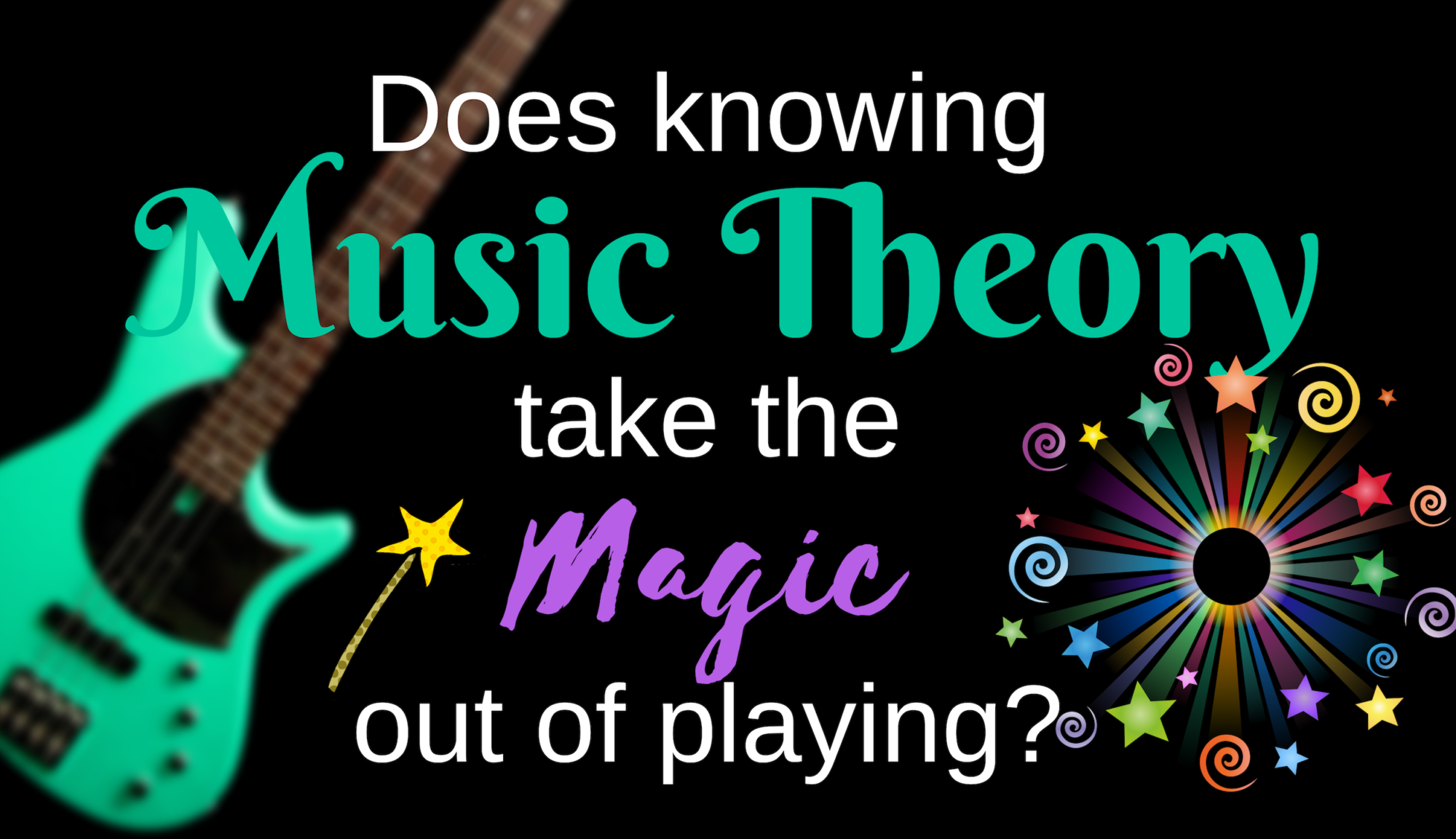I have heard these sentiments about the magic of music over and over:
- Doesn’t “knowing” get in the way of pure “feeling”!?
- Aren’t you constantly analyzing when you know theory?
- Doesn’t knowing what you are doing take the magic out of playing?
And on and on people go, assuming that somehow knowing what you are doing diminishes your creative freedom while you are doing it. That it stymies your creativity somehow. That you are “cheating” or being “less original” if you actually know common chord progressions, scales, rhythms or how to read.
Let’s just say that I have never – not once – heard anyone who actually knows theory express a similar sentiment.
I have, however, heard plenty of amazing musicians say that they never had what you would consider formal musical training.
And I think that this is where the misunderstanding lies…
Hey, if Jimi, MJ, Danny Elfman…. say they never studied theory and they are THAT good – maybe I shouldn’t allow this stuff to get in the way of my true potential?
Let me stop you right there.
They may not have had formal study. They may not have gone through “every good boy does fine” or recited the cycle of fifths in both directions.
But it sure doesn’t mean that they did not have training or that they don’t understand theory!! Nor does it mean that they don’t consciously know what they are doing!
They all have had plenty of training, typically from a very young age!
They may not share the common language of music theory or know how to notate things – but that just means they came up with their own personal internal ways of organizing music. I know that if you play such an “ear player” things like the cycle of fifths or mediants or modal interchanges, they pick up on it instantly! So, they actually do know theory, and very well to boot, just not in the traditional, academic way and rather their own personal way!
Truth: Knowing what you are doing (and why) fosters more creativity and more freedom, not less.
But don’t take my word for it. Listen to what course participants of my course “Music Theory for the Bass Player” are saying about it:
The way I conceptualize it there are five ways to conceptualize creating (and practicing) music:
- Auditory (what you hear in your mind or out loud…)
- Visually (fretboard diagrams, the score (if you read), shapes on your instrument…)
- Kinesthetic (muscle memory, your fingers know where to go…)
- Conceptual (music theory, note names, scale degrees…)
- Spiritual (where your ideas come from, interplay with others, what you have listened to all your life and what inspires and moves you…) <- this is the “magic” if you will.
The above bullets are also a roadmap for how best to strategize your practice. A good teacher will be able to help you with all of them and tell you precisely how to practice and strengthen each of them.
How to practice the Magic?
The stronger you are with the first four, the more freely #5 – the magic – can flow. Practice 1 through 4 systematically. To practice #5: sleep well, eat well, listen well, support others (on the bandstand and beyond).
And one more thing: the less tension you have in your hands and entire body as you play, the easier this elusive, magical place can be reached. It is never guaranteed, but with the right preparation, you can get there more and more often.




